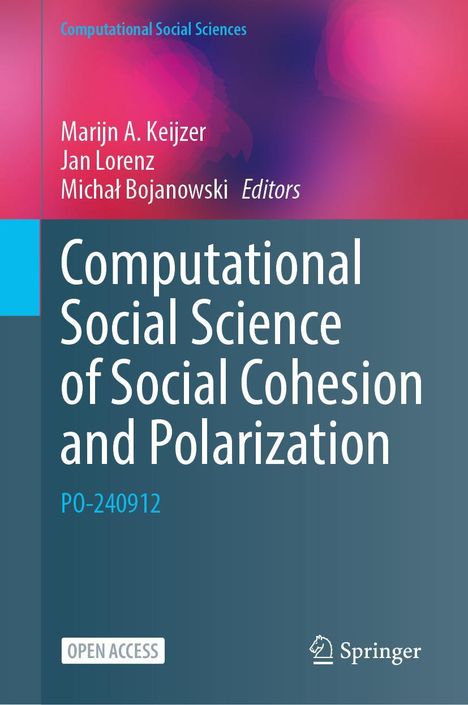Computational Social Science of Social Cohesion and Polarization, Gebunden
Computational Social Science of Social Cohesion and Polarization
(soweit verfügbar beim Lieferanten)
- Herausgeber:
- Marijn A. Keijzer, Jan Lorenz, Micha¿ Bojanowski
- Verlag:
- Springer, 02/2026
- Einband:
- Gebunden
- Sprache:
- Englisch
- ISBN-13:
- 9783032013729
- Artikelnummer:
- 12340242
- Umfang:
- 300 Seiten
- Gewicht:
- 670 g
- Maße:
- 241 x 160 mm
- Stärke:
- 21 mm
- Erscheinungstermin:
- 8.2.2026
- Hinweis
-
Achtung: Artikel ist nicht in deutscher Sprache!
Klappentext
This is an open access book. What holds societies together---and what drives them apart? As worry over political polarization and social cohesion intensifies across the globe, this volume explores timely and vital questions of social cohesion and polarization through the lens of Computational Social Science. It brings together leading and junior scholars who harness the power of computational methods to analyze, model, and understand discourse, social relationships, and beliefs. Drawing on tools such as agent-based modeling, social network analysis, and natural language processing, the book offers a range of innovative approaches to study how belief systems form, attitudes polarize, and communities fragment.
Aimed at researchers, students, and practitioners across disciplines, this volume is both an introduction to the field and a showcase of its most promising applications. It is an introduction into CSS of social cohesion and polarization, and an invitation to rethink how we study---and perhaps even how we can repair---the social fabric.


